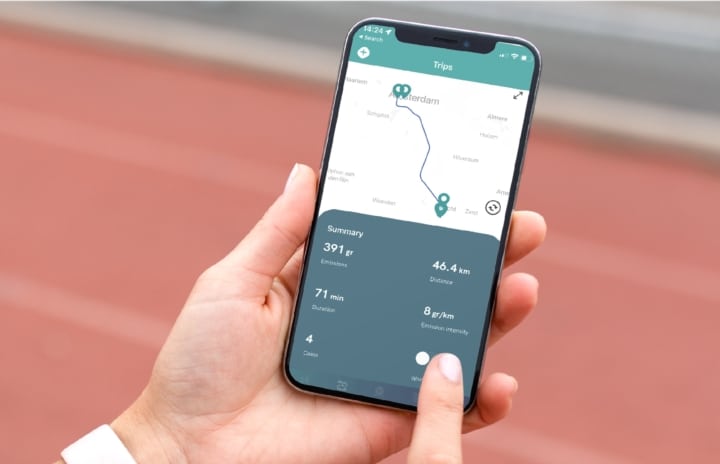Ministry of Infrastructure and Water Management introduces CO2 reporting obligation for companies
From July 1, 2024, large organizations with more than 100 employees in the Netherlands must report all commuting and business mileage of employees. This is reported by the Ministry of Infrastructure and Water Management in a press release on 19 April.
The current target is to save 1 megaton of CO2 per year. We see this as the bare minimum, and would like to raise the bar and challenge you to exceed this goal.
How exactly are we going to tackle this? And what tools are needed for this? We are happy to explain it to you in detail, but first, let’s take a look at what exactly changes.
What is the purpose of these new regulations and what does it mean for you?
From next year, large employers will be obliged to provide data about their home-work and business traffic of employees.
The objective of these regulations is to save 1 megaton of CO2 per year from 2030. Are employers not on track? Then from 2025, they will be obliged to travel more sustainably and economically.
All this is desperately needed because the Netherlands is now stuck in traffic again. Last week, for example, on a sunny Tuesday morning, there were 150 traffic jams totaling about 800 km of traffic jams.
Wouldn’t we permanently adjust our behavior after the COVID crisis?
Behavioral change in mobility: how does it work?
We would regularly continue to work-from-home, cycle more, go to the office outside rush hour, and use public transport more often. In addition to the climate gains that this provides, there are almost 100% fewer traffic jams with 10% less traffic.
So do it!
But good intentions are quickly forgotten. This is because there is no incentive (consequence) to exhibit sustainable and vital travel behaviour.
Behavioral sciences have long known that people only adjust their behavior based on:
- Positive Consequences
- Negative Consequences
In the case of negative consequences, people show the minimum behavior necessary to avoid a punishment or fine.
For example, during the COVID crisis, the negative consequence of the danger of a COVID infection or fine applied. The behavior was that people neatly adhered to the Covid rules.
Now that these negative consequences have disappeared, the incentive is gone and we have to look at new positive incentives for stimulating sustainable and vital travel.
With positive incentives such as rewards, people and organizations tend to be more of the desired behaviour.
How can we achieve the goals of these new regulations even earlier?
With the new regulations, the positive incentives are unfortunately still missing. There is now only a threat to the employer that if the collective does not reduce sufficiently, a standard may be set.
This standard will probably have a negative consequence for the companies that do not comply with it.
Behavioral sciences have long known that rewarding is better than punishment. For example, you can reward employers by giving them insight into their performance compared to other employers.
Or by offering them a financial advantage in the event of further sustainability, for example through a higher tax-free home working allowance or kilometer reimbursement for sustainable forms of mobility.
Reward employees for desirable behavior and exceed the goal of 1 megaton CO2 savings
Employees can also be rewarded for their sustainable travel behavior through insight into performance (social reward) and higher kilometer reimbursement for the bicycle or electric (shared) car (financial reward).
As far as we are concerned, the new regulations are a very good first step towards achieving the mobility climate targets. Measuring is knowing and behavioral change starts with insight.
But wouldn’t it be nice to exceed that 1 megaton if that’s possible?
We think that is possible and challenge employers to start using a fictitious CO2 standard of 96 grams per kilometer and to start rewarding employees who fall below that.
We are happy to help you measure the CO2 emissions of your company
It is Fynch’s mission to encourage and help employers and employees in the Netherlands.
Fynch helps by measuring the exact CO2 emissions daily and by rewarding employees for sustainable choices.
In addition, we help both the employee and the organization with the daily administration and reporting of travel costs and home working days.
Do you want to know where you stand now concerning the CO2 emissions of your company? Contact us at info@fynchmobility.com or leave your details below. We provide an analysis of your current situation free of charge.


